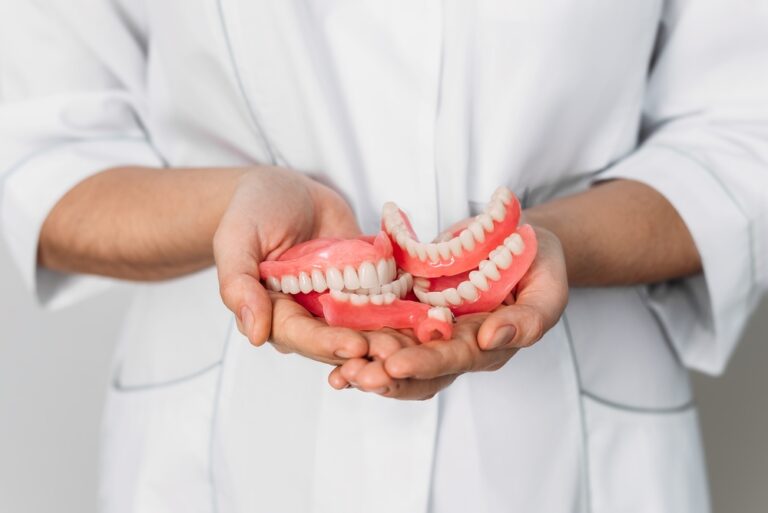It’s a sad fact of life that sweets are bad for our teeth. Not only are they content with being high in calories but these delicious treats can also cause cavities, tooth pain, and gum disease. But why is this and can you do anything about it?
The reason your teeth hurt can often be down to several reasons and not just one. Here we’ll look at what they are so hopefully you can get back to eating sweets without any pain. Let’s answer the question of why my teeth hurt when I eat sweets!
Why Do My Teeth Hurt When I Eat Sweets
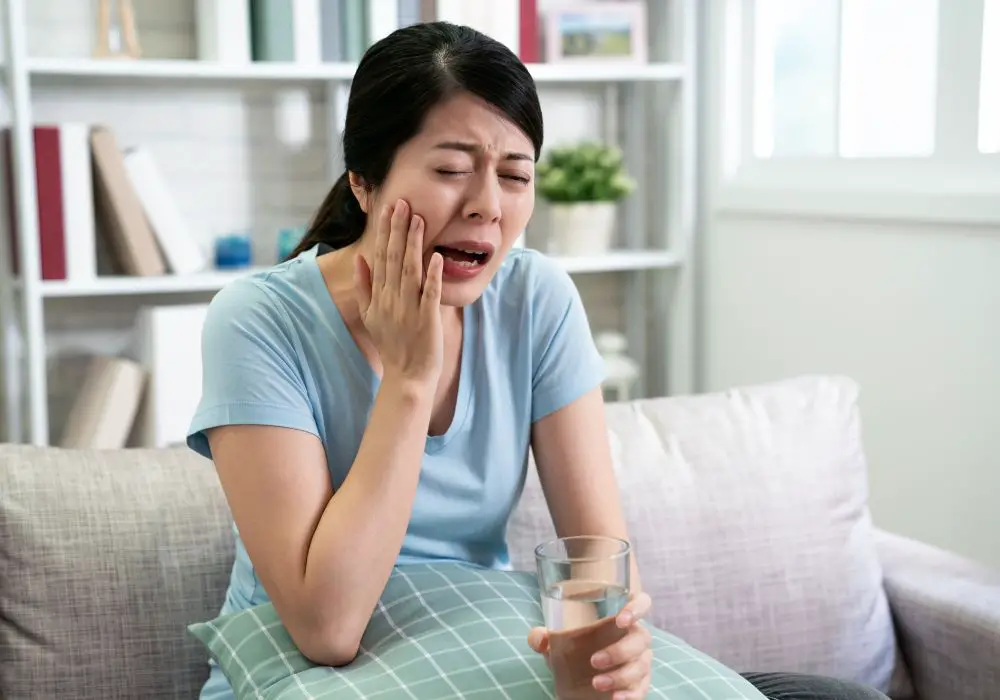
There are a few different reasons why your teeth may hurt after eating sweets, but it’s likely to be caused by sensitivity due to exposed dentin. This can happen when your enamel wears away and the more sensitive dentin underneath becomes exposed.
If your teeth are in excellent condition, then the pain could be down the mouth trauma, tooth whitening treatments, or receding gums. There are a few other possible reasons so read on to find out exactly why your teeth hurt after eating sweets.
Causes of Tooth Pain After Eating Sweets
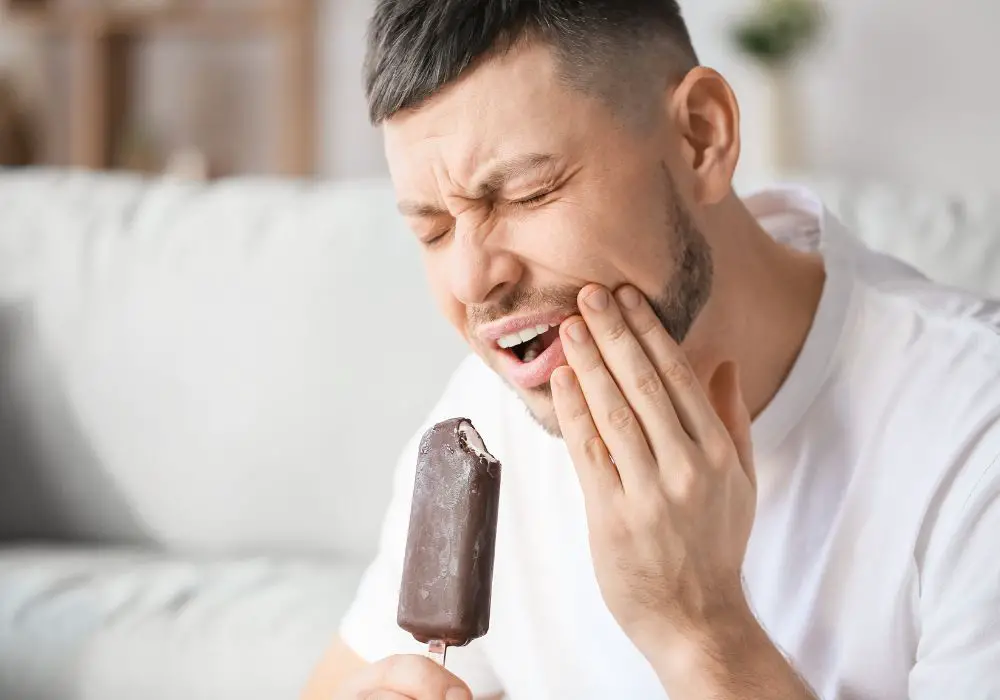
Consuming too much sugar can lead to your teeth becoming sensitized and when they are, they become vulnerable to sweet foods and drinks triggering that sensitivity. Here we’ll look at all the reasons you may be experiencing tooth pain.
1. Dentin Hypersensitivity
The most common reason for sensitivity after eating sweets is dentin exposure. The bacteria in our mouths love to feast on sugar. While some of this sugar comes from the likes of carbohydrates found in food and drink such as bread and milk, it’s much worse with refined sugar from sweets, sweetened drinks, and other sources.
The problem arises because the bacteria that love this sugar secrete acid. Therefore the more sugar in your mouth, the more bacteria, and the more acid. That acid will wear away at the enamel and eventually expose the layer underneath, called dentin.
This dentin layer is much more sensitive than the enamel and when it comes into contact with sweetened foods, it can cause pain. Another by-product of this is that dentin is much yellower than enamel, and that color will start to show through.
2. Mouth Trauma
The pain in your mouth can also be caused by mouth trauma. While this can be as serious as broken or missing teeth, mouth trauma can be as simple as taking a blow to the mouth which hurts your teeth and gums but doesn’t cause any serious damage.
If you’ve been hit in the mouth for whatever reason, then it may take a while for the pain to stop. This can be especially true if you are trying to eat hard sweets. If mouth trauma is the cause, then you’ll also get pain from other hard non-sweet foods.
3. Gum Disease
There are two main types of gum disease which are gingivitis and periodontitis. The former is caused by a build-up of plaque, which can harden to become tartar. When it does it will start to irritate the gums and can be made worse by inflammation from your body needing to fight off the bacteria.
With gum issues such as this, the roots of the teeth can become exposed which will be hypersensitive to sweet food and drink. Periodontitis is a serious infection that is much worse than gingivitis. If you had this then teeth sensitivity after eating sweets would just be one of many symptoms you have.
4. Cavities
This links to dentin hypersensitivity as they are caused by the same thing. Cavities happen when the acid from bacteria in your mouth creates a hole in your teeth. As this hole gets bigger, it will expose that dentin layer.
If not filled in, then that cavity will get even bigger until the teeth begin to crumble or the hole gets so big that it reaches the roots and nerves. If it gets to this point then eating any food will give you a lot of pain, and not just sweets.

5. Receding Gums
One of the causes of receding gums is the diseases that we mentioned earlier. This can expose the roots under your teeth which are going to be much more sensitive than the strong enamel layer that is meant to be protecting them.
While the disease can cause receding gums, they aren’t the only culprit. Smoking cigarettes, old age, teeth grinding, and overly aggressive teeth brushing can cause them to shrink away. Your gum health is as important as your tooth health, so it’s best to fix any bad habits you have.
6. Tooth-Whitening Treatments
If you have recently had your teeth whitened or used any whitening products, then you may have some temporary sensitivity. This is due to the chemical used in these treatments called hydrogen peroxide.
There are two ways this can make you sensitive. Firstly, it can penetrate through your dentin and cause irritation. Secondly, if hydrogen peroxide is left on your gums (which shouldn’t happen) then this can lead to gum irritation.
7. Hard Brushing
Another reason for tooth pain can simply be from incorrect brushing. If you are brushing too aggressively then it causes a few issues. You may be wearing away the enamel on your teeth and also causing gum irritation and bruising. With both of these issues, you may be exposing that sensitive dentin underneath.
8. Medications
There are many medications out there that can cause you to have a dry mouth. What’s the problem with that? Well, the saliva we have in our mouths does a great job of preventing the growth of bacteria and breaking down food. Without that saliva, bacteria will quickly thrive and eat away at your teeth.
Treatment Options
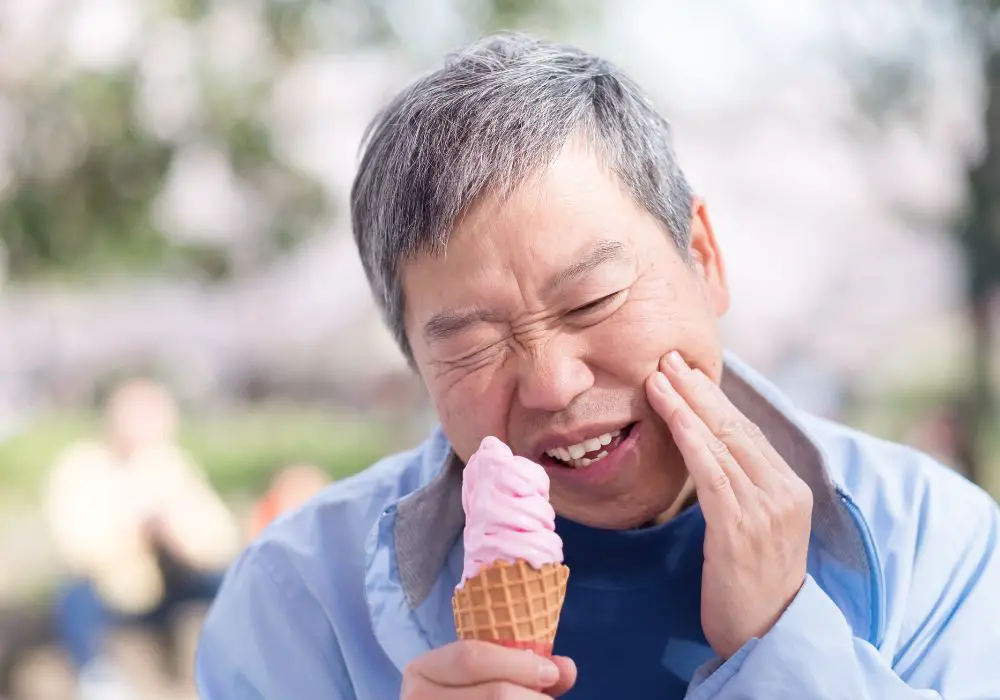
We’ve looked at what can cause the tooth pain but what can you do to solve the issue? Here we’ll look at a solution for each of the problems that we’ve listed above.
- Dentin Hypersensitivity – The best thing to do if your teeth become sensitive is to use sensitive toothpaste. These kinds of toothpaste contain ingredients (usually potassium nitrate) that cover the tunnels in your dentin that go to the nerve. This blocks your nerves from receiving pain signals.
- Mouth Trauma – The best thing to do with mouth trauma is to give yourself time to heal. If you fear that you have fractured or loose teeth, then you’ll need to visit your dentist and they’ll assess if you need treatment to solve your teeth pain.
- Gum Disease – If you’re dealing with gum disease, then a dentist can help. Here you’ll need a deep cleaning to remove any plaque and tartar which caused the infection. Along with this, you’ll need a course of antibiotics to fight the infection.
- Cavities – Yes, the dentist is the answer once again. If you have your teeth cleaned and filled, then the pain should immediately stop after recovery. After this, you need to keep on top of your brushing to prevent any further cavities from forming.
- Receding Gums – The treatment for receding gums can depend on what caused them such as smoking, disease, or teeth grinding, but a dentist could advise on your next steps. If you grind your teeth, then you may need to wear a mouthguard while you sleep.
- Tooth-Whitening Treatments – There is nothing you need to do here other than just wait. After a few days, the irritation will subside, and you’ll be back to normal. In the meantime, it would be advisable to eat soft non-sugary food.
- Hard Brushing – If none of the above apply to you, then reconsider your brushing routine. It may be that you are more prone to sensitivity issues than the majority of people and need to switch to a softer brush.
- Medications – Don’t stop taking your medications. Instead, try to increase saliva production by staying hydrated, chewing sugar-free gum, or sucking on ice cubes. Brush your teeth more frequently and with greater care than usual to prevent bacteria growth.
Should I Stop Eating Sweets?
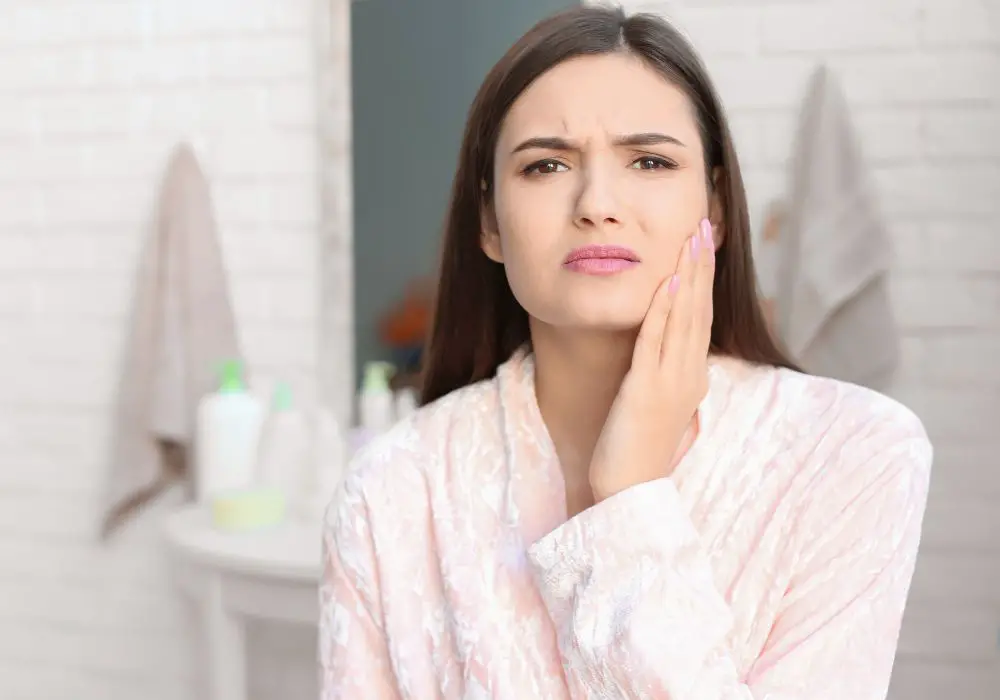
As humans, we have to balance enjoying life with things that can cause us health issues, such as sweets, alcohol, and caffeine. If you love eating sweets, then you just have to be more mindful of how they affect your teeth.
Bacteria will quickly produce acid after you eat sweets, so ensure that you are keeping on top of your brushing routine to reduce its impact. Ideally, you shouldn’t be having any refined sugar in your diet but if you do want to treat yourself, don’t have sugar sitting in your mouth for too long.
Conclusion
As we’ve seen, there are many reasons why your teeth may be hurting after brushing your teeth. The best idea is to look at the possible reasons above and see which one applies to you. Once you do, then you can take the steps to treat it.
For most people, teeth sensitivity is only a temporary issue that will either go away on its own or be solved in a few days with sensitive toothpaste. If your sensitivity persists or is causing severe pain, then see a dentist right away.




